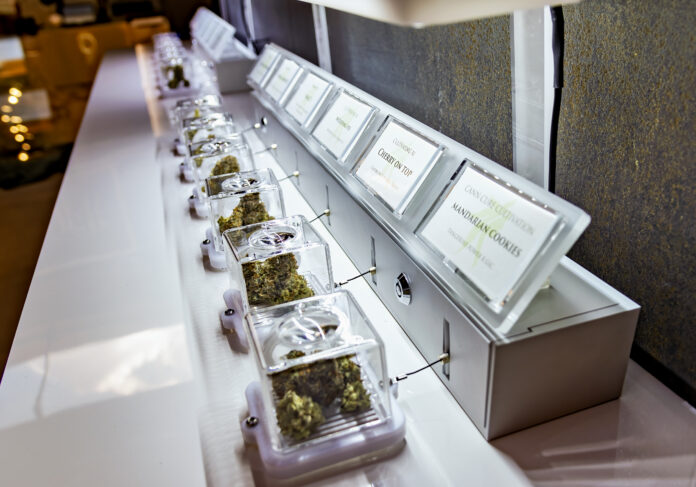With legal recreational cannabis sales underway in Rhode Island, not all retail dispensaries will start on equal footing. Industry observers say the state’s delay in forming a Cannabis Control Commission gives existing compassion centers a commanding competitive edge.
Five centers, the state’s preestablished medical cannabis dispensaries, were permitted to start retail sales on Dec. 1. Other businesses interested in entering the market will have to wait for the formation of a cannabis commission, which will set out the regulations on how about two dozen retail licenses will be issued.
The Rhode Island Cannabis Act, signed into law last May, gave Gov. Daniel J. McKee 40 days to appoint the three commissioners, following recommendations from the House speaker. The deadline has passed, and a spokesperson for McKee says the governor will not make appointments until the new year.
Calls to the R.I. Department of Business Regulation were referred to the governor’s office, which declined to make further comment.
The delay “without a doubt” puts people who are interested in entering the Rhode Island market at a disadvantage, said Magnus Thorsson, a professor at Johnson & Wales University’s Cannabis Entrepreneurship Program.
“The compassion centers have been around for a while,” Thorsson said. “People know where they are, no one has to look for them … Businesses that are going to have to start from fresh will have to advertise their location, and they’re going to have to ‘train’ new customers.”
However, the delay may give some prospective businesses time to reassess the risk and benefits of entering the Rhode Island market, based on early recreational sales at compassion centers, Thorsson says.
“I think a lot of people are thinking about their business plans, seeing what a muted response legalization actually turned out to be in Rhode Island,” said Thorsson, referring to media reports that sales since Dec. 1 have been lackluster. “It was a sizeable nonevent.”
Even with a head start, compassion centers face stiff competition from across state borders, Thorsson says. Massachusetts began recreational sales in December 2018, while Connecticut legalized sales in summer 2021.
The early retail figures from compassion centers are “going to make people who are looking to open up businesses scrutinize their business plan,” Thorsson said, “and make sure that their breakeven point and their performance that they forecasted [are] actually matched by the demand that they’re realizing.”
John Leighton, general manager at Pawtucket compassion center Mother Earth Wellness Ltd., remains upbeat. He says the launch of recreational sales has sparked excitement among his customers, some traveling from nearby states.
Leighton is optimistic that the Ocean State’s incremental launch, as a whole and for some businesses, will facilitate “a little more foresight, a bit more of a cautious approach” in doing business.
Adina Birnbaum, principal CEO at the Rhode Island-based cultivator Talaria LLC, says that she does not see Rhode Island’s rollout process as moving too slow. Massachusetts, for example, legalized recreational marijuana in 2016 but didn’t record its first sales for two years.
While the head start for compassion centers gives them an edge, Birnbaum says the phased process will benefit the state overall.
“In order to have adult-use, legal cannabis available as quickly as possible, it was imperative that the current centers be able to sell adult use as quickly as possible,” said Birnbaum, whose business cultivates cannabis to sell to compassion centers and eventually to licensed retailers.













